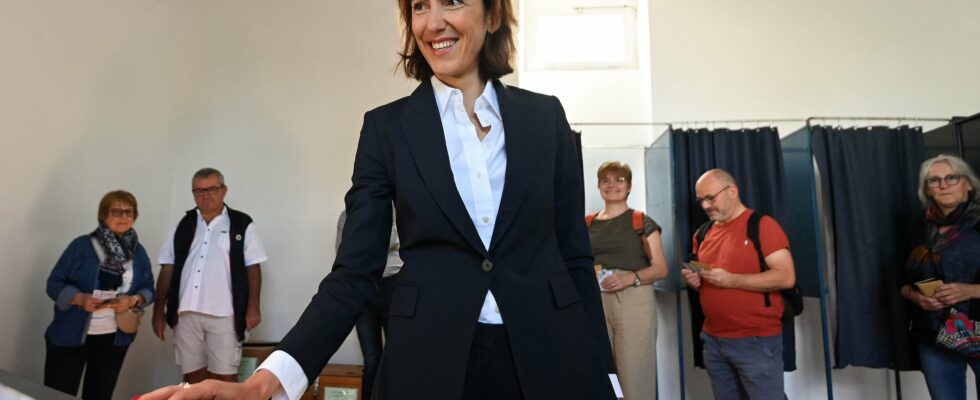No time to dwell. The European Union continues to spin, even if many on the continent keep a worried eye on France and its upcoming election. In the wake of the renewal of the European Parliament, strategic meetings follow one another, which will shape the face of the European institutions for the years to come. Despite the poor results of the Macronist list on June 9, the French are, like the others, maneuvering on several fronts to try to preserve their influence in Brussels.
First tangible result, the former head of the list Valérie Hayer was re-elected on Tuesday June 25 at the head of the liberal parliamentary group Renew. The position was considered crucial by Paris: its holder participates in the Conference of Presidents, which manages the European Parliament, and he is one of the contacts of the President of the European Commission.
Macron’s influence on the EU’s top jobs
“The price to pay will be high, the French will not lead a powerful parliamentary committee,” nevertheless anticipates a European source. In the outgoing Parliament, the Macronists led the Environment and Fisheries committees, as well as the Defense subcommittee. But since June 9, there are only 13 (compared to 23 previously) in a group which has ceded third place in number of elected officials to the right-wing Eurosceptics of ECR.
Under the complex rules for the distribution of responsibilities in the European Parliament, the centrists will have to reduce their pretensions. “Certainly, Renew will have fewer positions, but its elected officials remain essential to von der Leyen’s political majority, puts a high-ranking diplomat into perspective. Furthermore, in this pivotal group, the French delegation remains first.”
Illustration of this pivotal role, Renew keeps its say on the holders of “top jobs”, the main positions in the EU institutions. The leaders of the 27 member states must officially designate them this Thursday, June 27, but the three main pro-European political families have agreed in advance on a trio: the Conservatives of the EPP want to keep the Commission for Ursula von der Leyen; the social democrats demand the European Council for the Portuguese Antonio Costa; finally, the centrists intend to place the Estonian Kaja Kallas at the head of European diplomacy. An agreement that Emmanuel Macron helped to shape, since with the Dutchman Mark Rutte, he was one of the two negotiators mandated by Renew. The Italian Giorgia Meloni, although crowned with her victory in the Europeans, finds herself isolated and faced with a fait accompli.
The head of Fratelli d’Italia will seek revenge at the Commission, whose portfolios are already the subject of covetousness and behind-the-scenes negotiations. The outcome of the races will also allow us to measure France’s weight. Paris and Rome are targeting a major economic position. France had been well served during the previous term by obtaining the internal market, but this time it is aiming even higher. Discussions with Ursula von der Leyen focused on a vice-presidential position that would oversee industrial policy and the fight against economic dependencies. At this stage, Thierry Breton is holding the rope for a second term.
The shadow of the legislative elections
At the end of June, Paris therefore seems able to limit the damage. “The influence of a country in Brussels depends on its size, the stature of its leader and the internal political situation, deciphers a source at the heart of European power. France remains the second largest economy in the EU, its only nuclear power. Macron is still Macron, strategically and intellectually above almost everyone.”
A major unknown remains: the evolution of the political landscape after July 7 and the second round of the legislative elections. In the event of cohabitation with the RN, the president and ministers would come to Brussels with divergent political lines, the appointment of the Commissioner would be the subject of tensions, the relationship with Germany would deteriorate… Enough to potentially sweep away the results of the efforts undertaken in recent weeks.
.
